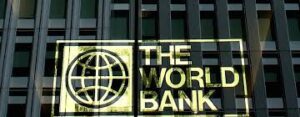
The World Bank has reiterated its dedication to promoting economic growth and sustainable development across Africa, with Ghana identified as a key partner in its efforts. During a high-level meeting in Accra, last week, Ousmane Diagana, the Vice President for West and Central Africa at the World Bank engaged with President John Mahama to discuss strategies for bolstering Ghana’s development agenda.
The discussions centred on enhancing partnerships and refining Ghana’s economic strategies, with the World Bank expressing its commitment to financing critical initiatives and addressing challenges related to sustainable growth. Highlighting the institution’s evolving approach under its new president, Ajay Banga, Diagana described the transformation as creating a “better and bigger World Bank.”
He stressed that the immediate focus is on becoming a “better bank” by prioritizing government ownership, fostering strong client partnerships, and leveraging the World Bank’s global expertise.
Diagana emphasized the importance of broadening Ghana’s resource base and strengthening domestic financing mechanisms to ensure sustainable economic growth.
“We aim to ensure that resources mobilized for the economy are sustainable and not overly reliant on external financing. Ghana’s challenges in this area mirror those faced by other countries such as Senegal and Kenya. We are committed to engaging with Ghana to expand its resource base while fortifying its domestic financing structures,” he explained.
The agricultural sector, particularly cocoa production, was a focal point of the discussions. Diagana noted that while Ghana’s agricultural industry holds tremendous potential, it continues to grapple with significant challenges.
“Ghana is one of the countries where we have developed a country climate and development report. This report highlights both the opportunities in agriculture, especially cocoa, and the challenges
the sector faces. We are ready to utilize our existing programmes to support this critical area,” he said.